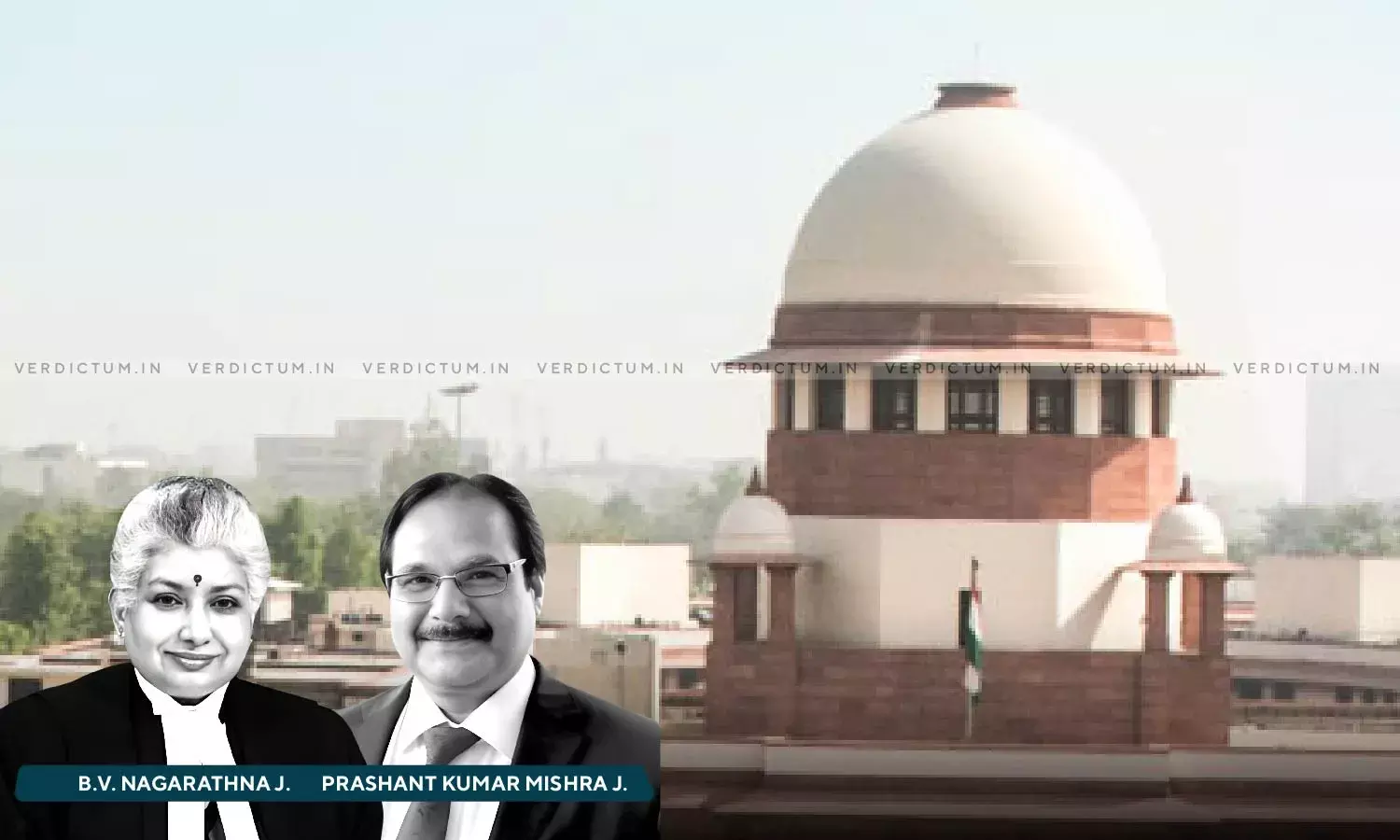Motor Vehicles Cases Must Be Decided On Basis Of Preponderance Of Possibilities Rather Than Proof Beyond Reasonable Doubt: SC
The Supreme Court allowed a Criminal Appeal challenging an impugned order, wherein the High Court quashed the final report of a road accident. The Apex Court ruled that the principle of ‘res ispa loquitor’ applies to the facts and that the motor vehicle cases should be considered on the basis of preponderance of the possibilities rather than on the basis of proof beyond a reasonable doubt.
The two-judge Bench of Justice B.V. Nagarathna and Justice Prashant Kumar Mishra observed, “Insofar as the claim petition filed by the Appellant herein is concerned, alleged negligence on the part of the driver of the tanker lorry and pickup van in causing the accident has to be proved. That is a matter which has to be considered on the basis of preponderance of the possibilities and not on the basis of proof beyond reasonable doubt”.
The Bench observed, “Further, the observations of the High Court to the effect that the car driven by the Appellant’s son, Nixon Abey Mathew, was being driven rashly; that the car had gone astray to the wrong side; that the possibility that the driver of the car had driven the car after consuming alcohol cannot be ruled out; that rashness and negligence on the part of the driver of the car is patent and that this is a clear case in which the principle of res ispa loquitor applies, are in the nature of findings which were wholly unnecessary to be made while considering the correctness or otherwise of the final report submitted on further investigation of the case”.
Advocate Jishnu M L with Advocate on Record G. Prakash appeared for the Petitioner and Advocates on Record Nishe Rajen Shonker with A. Karthik appeared for the Respondents.
In this case, an FIR was registered in the police station against the Petitioner’s son under Sections 279 and 304A of the Indian Penal Code (IPC). The Petitioner's son was driving a car with his friends when they were involved in a collision with a lorry, the driver of the lorry was driving rashly and negligently. The collision led to the death of the Petitioner's son and his friends. The Petitioner filed a claim petition seeking compensation, but the Assistant Commissioner of Police filed the said FIR against the Petitioner's son for abetting the accident. The final report stated that the incident was an unavoidable accident and not attributable to the negligence of the Petitioner’s son, but the High Court quashed the final report.
In this context, the Court observed that the approach adopted by the High Court to access the correctness of the findings of the final report was wrong and improper and therefore liable to be set aside, while emphasising “It is on the basis of the aforesaid observations which are in the nature of findings that the High Court has quashed the report made pursuant to further investigation by opining, “The incident is attributable to the rash and negligent driving of the Alto car”. The opinions expressed which are in the nature of findings while considering the correctness or otherwise of the final report submitted on a further investigation of the case and thereby quashing the same is, in our view, not a correct and proper approach adopted by the High Court. Hence, the impugned order of the High Court is liable to be set aside on this short ground alone”.
Additionally, the Court asserted that the findings of the final report have no bearing on the claim petition and noted, “Thus, the opinion in the final report would not have a bearing on the claim petition for the aforesaid reasons. This is because the Appellant herein is seeking compensation for the death of his son in the accident which occurred on account of the negligence on the part of the driver of the tanker lorry, causing the accident on the said date”.
Accordingly, the Court allowed the Appeal and set aside the impugned order of the High Court.
Cause Title: Mathew Alexander v Mohammed Shafi and Anr. [Neutral Citation 2023 INSC 621]



